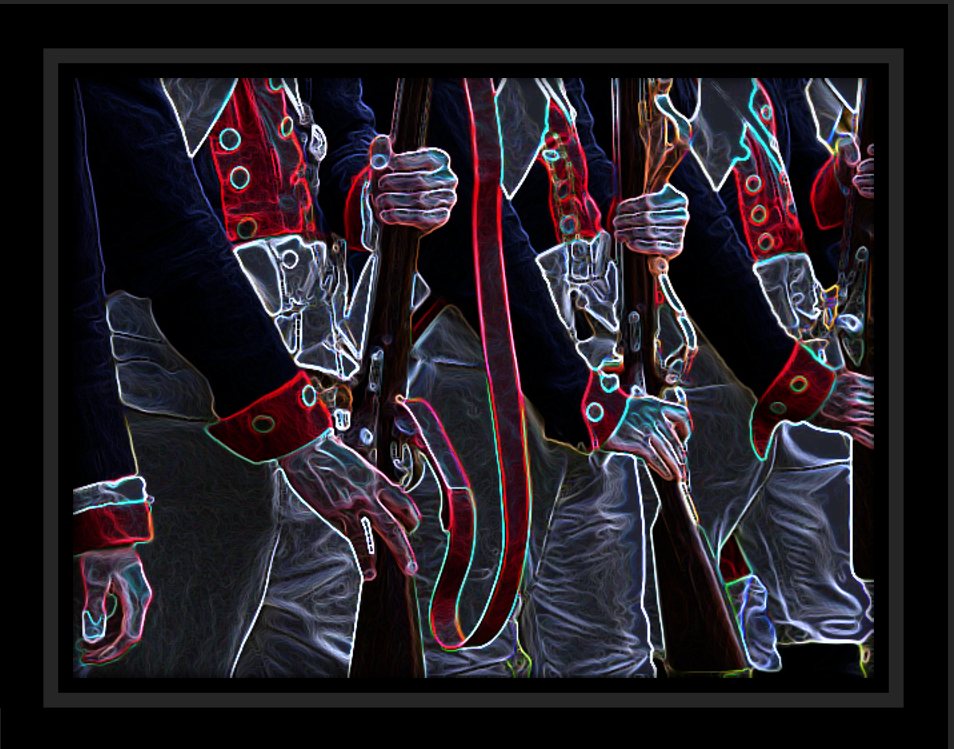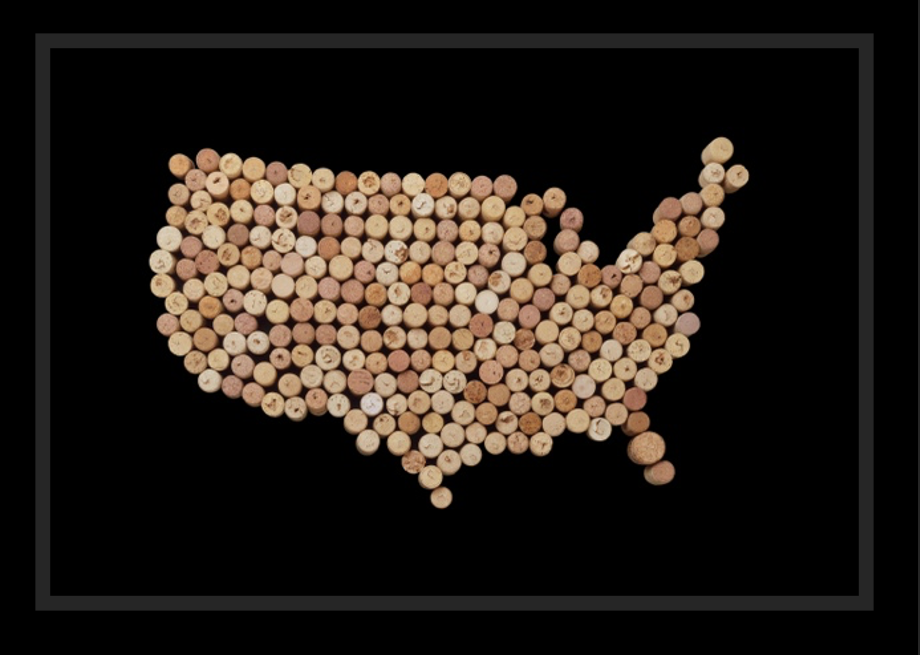HOURS: TUESDAY-THURSDAY 12-6PM // FRIDAY & SATURDAY 12-8PM // SUNDAY 12-5PM // CLOSED MONDAYS
Patriotism doesn't mean nationalism...in wine
Patriotism doesn't mean nationalism...in wine

Introduction:
In this period of political and ideological turbulence, where globalist liberalism and open borders have engaged in a tug-of-war and a dichotomy of the two extremes without centrist moderation, we find ourselves in a situation of total confusion. By the same token, we have developed a fear of choosing the wrong side and being judged or, even worse, of being excommunicated from our social group by our beliefs and convictions. Because today, it seems to me, there are only two accepted realities: either you're the good guys and the others are the bad guys, or vice versa for the other group. So, the question is: how can we take a stand in our consumer choices with conviction and without egocentric individualism, but also how can we “Buy American” without being nationalistic in our wine choices?
First, let us be reminded of the original definitions of Patriotism and Nationalism.
Patriotism:
The word “patriotism” comes from the Latin patria, meaning “homeland”, i.e. the country of the fathers (the ancestors).
In ancient Greek and Roman thought, being a patriot meant, above all, serving the city (like Athens or Rome), respecting the laws, and sacrificing oneself for the common good. The patriotic citizen was one who put the interests of their country ahead of their own personal interests. Originally, patriotism referred to a deep attachment to one's native land and community, often linked to the duty to defend it.
Nationalism:
The word “nationalism” appeared mainly in the late 18ᵉ and early 19ᵉ centuries in the context of the American and French Revolutions, as well as in the independence and national unification movements in Europe (Italy, Germany…).
Originally, nationalism refers to a political ideology that asserts that every people with a common culture, language, or history should form an independent, sovereign nation. It's a liberating idea, opposed to monarchical order, empires, and foreign domination.

As these terms have evolved, they now have a more realistic definition.
Modern patriotism:
Can be defined as an attachment to one's country based on current values, such as democracy, human rights, solidarity, social justice, and ecological responsibility. Unlike traditional patriotism (which often focuses on history, symbols, or national identity), modern patriotism emphasizes building a common future rather than simply glorifying the past. It is characterized by constructive criticism, by loving one's country while acknowledging its faults, and seeking to improve it. Through inclusion, by considering all citizens, whatever their origin, to be part of the nation. Through civic engagement, by taking an active part in democratic life (voting, debates, solidarity); through openness to the world, by being proud of one's country while respecting other nations and cultures. And social and ecological responsibility, by acting in the collective interest and for future generations. In short, modern patriotism is not an inward-looking attitude, but a lucid, positive commitment to one's country and its values.
Modern nationalism:
Is an ideology or sentiment which asserts that every nation has the right to govern itself; to protect its cultural, political, and economic values; and to ensure the cohesion of its population through: sovereignty, national identity with the will to preserve culture, language and traditions in the face of global standardization, resistance to globalization, immigration and supranational institutions, and, finally, Plurality.
But how do we define these concepts and their differences in today's world of wine and consumer choices?
What is wine patriotism?
It's an attachment to national wine production, often accompanied by local or regional pride, support for the country's winemakers, and a desire to defend and promote one's wine as a cultural symbol.

How does the United States demonstrate its wine patriotism?
It was especially after the Judgment of Paris (1976), when Californian wines outstripped French wines in an official blind tasting, that Americans realized that their wine could compete with the best. This has reinforced a national pride in wine, and many Americans, especially in wine-producing regions, prefer local wines, short circuits and AVA labels. But it's especially with the advent of the “New California” movement and Natural Wines that there's now a strong wine patriotism in the United States, marked by regional pride and support for local producers, linked to a positive patriotism that's often economic and cultural, rather than ideological or exclusive. But this American wine patriotism is less ancient and ritualized than that of some European countries. It is more commercial, entrepreneurial and regionalized than ideological, representing the value of American innovation associated with the pioneering spirit, creative freedom and innovation (as there are fewer rigid traditions than in the Old World). This image has since fueled a sense of “American style” excellence. But it has also led to committed consumers choosing American wines on principle, to support the local economy or out of environmental conviction. This is unlike the protectionism that exists in in some European countries, where there's no nationalist discourse on wine (just “our wine is the only really good wine”). Rather, in America it's a positive, open-minded wine patriotism that coexists with curiosity about wines from the rest of the world.
In short, American wine patriotism does exist. It's based on pride in local terroirs, winemaking excellence, support for domestic producers, and confidence in America's ability to produce world-class wines while remaining inclusive, innovative and forward-looking.
As for American “wine nationalism” in the strict sense, it doesn't exist; rather, there is a national pride in wine, based on worldwide recognition of the quality of American wines, yet the current government's nationalist and protectionist policies are having a major impact on the economy and survival of our artisan winemakers.
That's what we call the boomerang effect.
If the main decision behind the introduction of tariffs was to boost the American economy “Made in America First”, the actual result is completely the opposite, provoking the predicted death of our American viticulture and small, independent, eco-responsible artisan producers. For the reaction of all importers/distributors has been to overload their warehouses with stock of European wines and reduce their cash flow reserved for importing/distributing domestic vineyards to almost zero.
So, if consumers, especially on the East Coast, don't change their consumption habits and continue to consume only through economic and individualistic choice decisions, they will unfortunately very soon be restoring only mass-produced “Made in USA” wines.
Conclusion:
I don't want to be defeatist or alarmist, but just proud to offer at Bonde Fine Wine the best our country has to offer. Because at Bonde Fine Wine we believe in the adage “Before you judge me..., do you know who you are?
So be “Wine-Patriotic” by consuming U.S.-produced wines “first”, protect your economy by keeping our wine dollar in our economy. Be proud of regional wines and producers by showing pride in the quality of our wines from California, Oregon, Washington, Michigan, and everywhere from New Mexico to Texas, from Vermont to the Finger Lakes, or from Massachusetts to Long Island NY, North Carolina, and Maryland. Take the time to discover our producers and their work, because it's a kind of regional patriotism that's integrated into the national feeling, which directly enhances innovation and support for the local economy, reduced environmental impact (less transport, short circuits), and responsible, chemical-free agriculture.
So “Resist” to consume European First. Drink “Domestic First” because it's good for your patriotism, your conscience, the resemblance with your pears, and your patriotic economic duty.
And please help your local business like Bonde Fine Wine Shop, if you want us to continue to be able to serve you tomorrow.
Powered by Lightspeed
Display prices in:USD
